GENERAL
The School of Fisheries is responsible for developing and delivering education, training, and industry development services required to meet the needs of the harvesting, processing and aquaculture sectors of the seafood industry, and of the food industry in general. The School’s resources are committed to developing and delivering education and training programs to meet the needs of these sectors. The School’s education and training programs range from full-time programs offered at the Marine Institute’s facilities on Ridge Road to a comprehensive suite of short, industry-response courses which are community based and offered in response to specific industry and group requests.
Increasingly, the School of Fisheries is moving to more on-line programs, particularly in its graduate programming (i.e. masters and post graduate certificates).
The programs offered by the School of Fisheries are as follows:
The School of Fisheries also offers a variety of industry response courses in Processing, Harvesting and Aquaculture. These are normally offered on a contractual basis in partnership with industry clients.
The Marine Institute has a history of delivering education and training programs in communities across Newfoundland and Labrador and in other areas of Canada. Since 1964, community based training has been a part of the Marine Institute. The Community Based Education Delivery Unit (CBED) continues this tradition, offering industrial response training. The unit’s main office is located in St. John’s with regional offices located in Lewisporte and Iqaluit, Nunavut.
In collaboration with industry and government CBED supports key training priorities by organizing, facilitating, and leading training in these areas:
To respond to industry and community needs:
The Centre for Sustainable Aquatic Resources was established in 1988 to promote the sustainable development of aquatic resources through collaborative industrial research and development, technology transfer and education services to the global fishing industry.
Working collaboratively with industry, government and academia on a local, national and international level, the Centre:
The Centre’s facilities include the world’s largest flume tank - the aquatic equivalent of a wind tunnel, underwater remote sensing equipment, underwater camera services, hydrostatic pressure testing, and a core staff of fisheries researchers with local, national and international experience in fishing gear design, fisheries sustainability and responsible harvesting and energy efficient fisheries. The Centre offers research opportunities to graduate students at Memorial University.
The Centre for Aquaculture and Seafood Development (CASD) has a solid history of building successful partnerships with other ocean research agencies such as the Ocean Sciences Centre, the Centre for Cold Ocean Resources, The National Research Council, the Institute for Marine Bio-Sciences, the Coastal Zone Research Institute; and other provincial, national and international aquaculture and seafood processing enterprises.
The CASD team of scientific and technical researchers combines qualifications with multi-disciplinary industrial skills to provide assistance to clients in all areas of aquaculture and food development ranging from site evaluation services; to food processing technology design, processing automation, and testing; food product development; fish health and nutrition and marine biotechnology. The CASD offers industrial applied research, technology transfer and consulting services to its clients.
The Centre for Fisheries Ecosystems Research (CFER) was established at the Marine Institute in 2010. The Centre’s goal is to perform fisheries research that will gain better understanding of fish stocks and productivity in Newfoundland and Labrador’s marine ecosystem. This, in turn, will enable the province to assist in federal and international fisheries management.
Specifically, CFER’s mandate is to:
